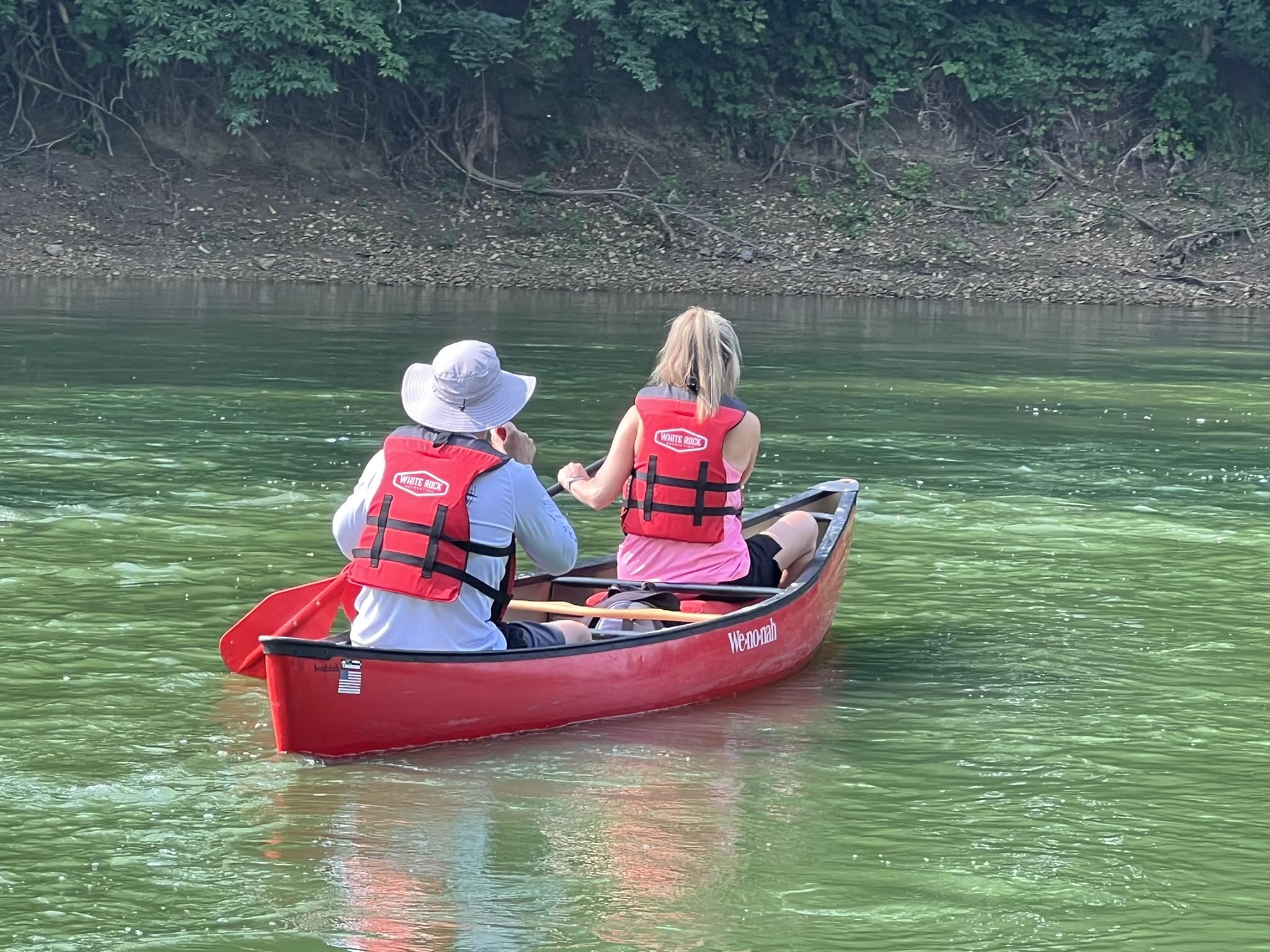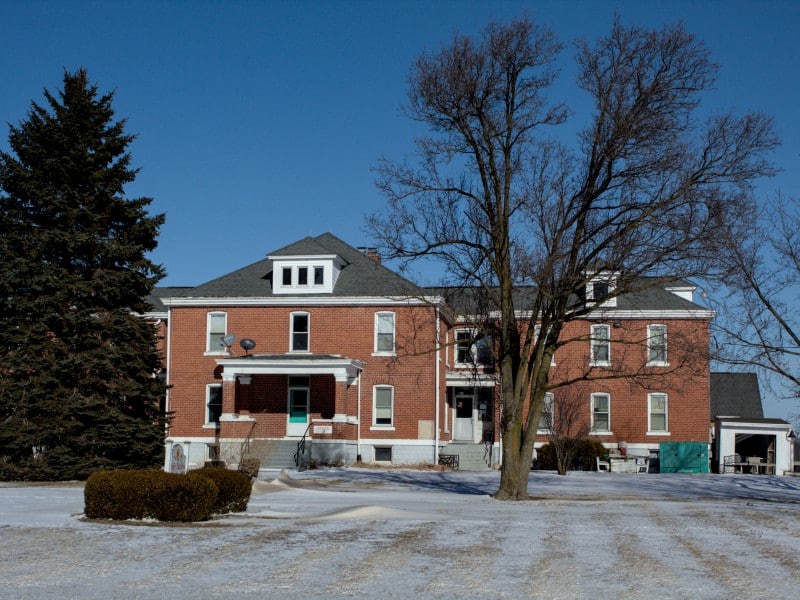Meet the volunteers behind Indiana’s largest river cleanup event
The Wabash River Defenders are a group of volunteers whose mission is to protect, preserve and defend the Wabash River.
Life-long Wabash resident and self-proclaimed “river rat,” Michael Beauchamp has spent his life in and around water, including the rivers that run through Indiana.
He grew up on Lake Tippecanoe. As an adult, he took his daughters on trips using the Wabash River. Those trips included traveling from Wabash to New Orleans, from New York City to Wabash, and from the Rocky Mountains to Wabash.
He says on those trips, he couldn’t help but notice the amount of trash in the Wabash River.
“What really impressed me, was I found a school bus in the river in Southern Indiana,” says Beauchamp. “When I saw that school bus I thought, ‘I love this river. It’s paid me such great dividends. I have got to pay something back.’ I decided if I ever had the chance, I’m gonna do some clean up in the river.”
So in 2011, over a cup of coffee in Lagro, Indiana, Beauchamp and other Wabash County residents decided it was time to give back to the river and take action to clean it up. Forming what is now called the Wabash River Defenders, they rounded up other community members and hosted the first Clean Out the Banks event.
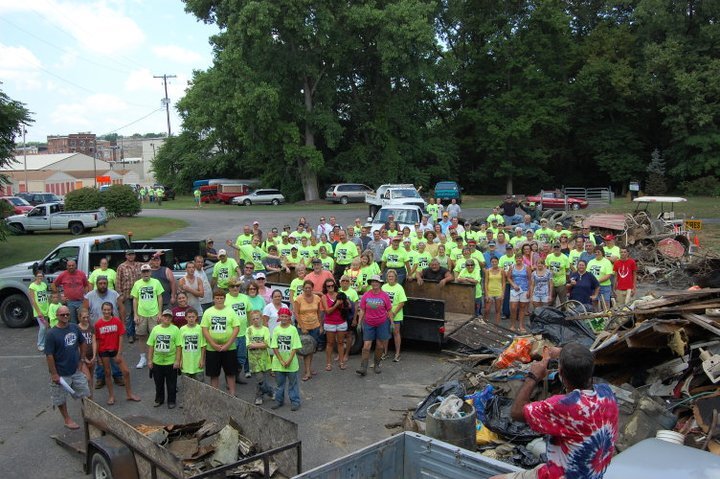
“We cleaned out all kinds of debris and tires,” he recalls. “I was just amazed at how people here love that river and love to get in and do something worthwhile.”
Beauchamp says over 350 people came to help that first year. Over the past 11 years, around 400 people have shown up each year to help. It has become the largest river-volunteer cleanup in Indiana, averaging around 400 volunteers each year.
Jen Rankin, president of Wabash River Defenders and executive director for Wabash County Solid Waste Management District, says they usually clean up a roughly 20-mile stretch each year, depending on the number of teams.
This year, teams will meet at Paradise Spring Park at 7 a.m. on Saturday, July 29 for a kickoff meeting and a small breakfast before descending upon the banks of the Wabash River. By foot or by boat, volunteers will spend the day picking up the debris littering their waterways. Post-cleanup, Thomas Technologies sponsors lunch for volunteers, which is prepared by the Knights of Columbus.
The annual river cleanup has pulled over 146 tons of debris from the Wabash River and over 5,000 tires. Among the debris from the river, volunteers have found televisions, computers, bicycles, furniture, and vehicles.
Rankin says it takes a few organizations to make the cleanup possible, including a partnership between the River Defenders and the U.S. Army Corps of Engineers, which controls the water level, ensuring it’s low enough for volunteers to safely enter.
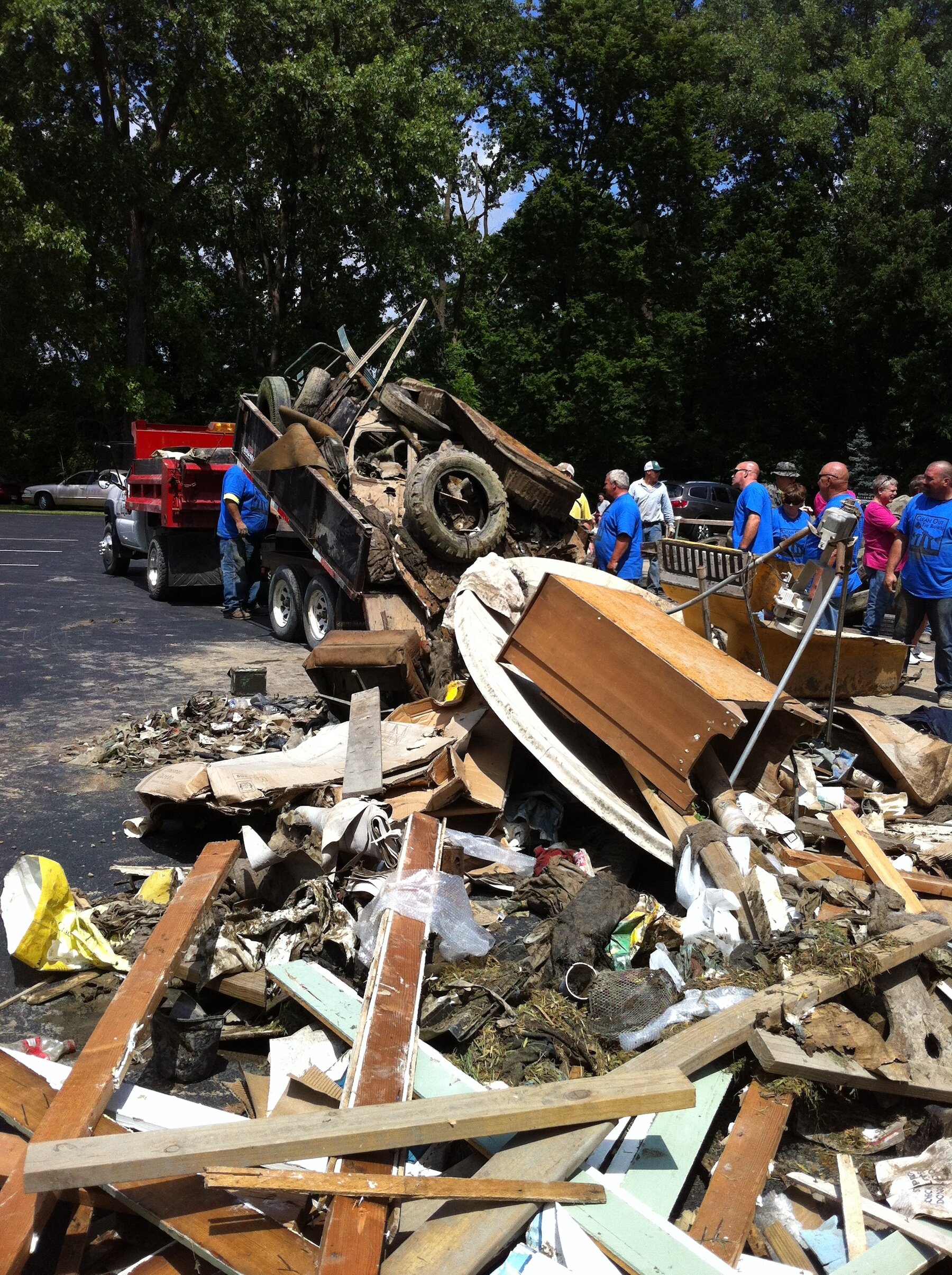
The River Defenders also work with the local street department and the Solid Waste District to ensure anything that can be recycled is and that everything else is properly disposed of. According to the River Defender’s website, 75 percent of the total weight of debris has been recycled.
Participating in the annual river cleanup is not easy work, Rankin says, but it’s worth the effort.
“In order to be involved with the cleanup, you need to understand that it’s hard work,” she says. “We work hard that day, but I’ll tell you what– I haven’t done anything that’s more fun than that cleanup. We make an impact and we have a blast doing it. It’s heartwarming to look back and reflect on what you’ve done.”
Rankin explains that their work helps guarantee that future generations get to enjoy the natural features in Wabash County.
“If we don’t protect our natural resources, someday we’re not going to have them,” she says.
And it would seem other Wabash County residents would agree. Many view the river as an asset to their community, which is likely why so many turn out to help clean it up.
Wabash resident and business owner Candie Cooper McCoart has participated in Clean Out the Banks. She describes the Wabash River and the trails along it as a great addition to everything else Wabash has to offer.
“There’s a charm to the river,” she says. “People use the river to have fun and to see nature. People fish the river. They float the river. There are eagles and great nature watching along the river. We feel like it brings people to our town.”
This year Candie and her husband, Aaron McCoart, took over White Rock Recreation, where they offer rental kayaks, canoes, and tubes, giving people a chance to see what the Wabash River has to offer firsthand. They also sell ice cream and host community events.

“It’s eye-opening how people use it,” says Candie. “We see people floating and enjoying it but it’s also a trash can of sorts for some. That’s really heartbreaking. I think the cleaner we can keep it, the better it is for everybody.”
She says having a group dedicated to cleaning and protecting the river is invaluable to their community.
“Being on the river is one of our town’s greatest assets because water is such an attractive thing in a community, so having it clean and having a group that’s committed to it– there are not enough words to describe how grateful we are for that,” says Candie.
But the Wabash River Defenders aren’t just focused on their annual river cleanup event.
“We’ve been lucky enough to get some recognition for our Clean Out the Banks events, which has called the attention to other communities up and down the river to try to put their own events together,” says Wabash River Defenders President Jen Rankin. “We’re pretty proud of that.”
Rankin says they’ve also developed a speaker program, which allows them to go out and help educate people on issues relating to the river. The group also recently applied for an EPA 319 Grant, a watershed grant, allowing them to research and address issues facing the Wabash River.
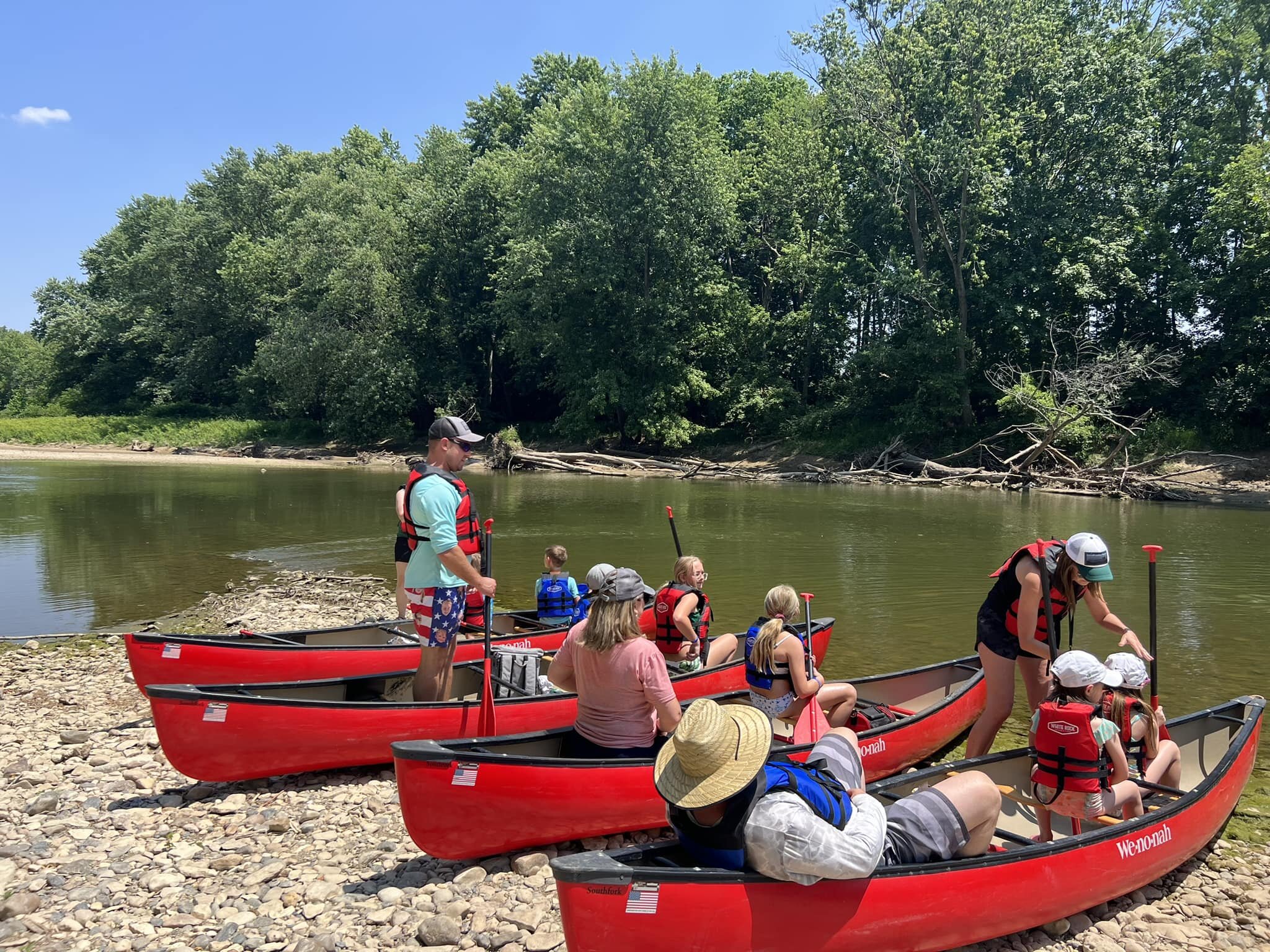
“Since we started with that basic cleanout, we’ve evolved into a watershed group,” she explains.
Now the group conducts testing for water quality issues, which it shares with the state. They also recently started addressing some drastic erosion issues on the river. Rankin shares that a farmer who owns land in one of the areas with erosion issues has steadily been losing land over the past decade and they’re working to put a stop to that.
Much like they partner with local and regional organizations to pull off their Clean Out the Banks event, the Wabash River Defenders also work with the Indiana Department of Natural Resources to address natural resource conservation, habitat restoration, and native species restoration. The River Defenders also have partnerships with ACRES Land Trust, the Wabash River Heritage Corridor Commission, the Indiana Department of Environmental Management, and many others.
To pass on the care and knowledge they have about rivers, they also started the Wabash River Junior Defenders, a program for fourth graders that teaches about pollution in rivers through a story about a fish named Freddy. The students then get to participate in a small cleanup in a local creek.
“It’s pretty neat,” says Rankin. “I think the first year they collected almost 400 pounds and they were so proud of themselves.”
They also developed a program known as the River Wild Program, where all the seventh graders from Wabash County take a three-mile, educational trip down the river. Starting in Lagro and floating downstream, students stop at different points in the river to learn from educators from various organizations, like the DNR, the U.S. Army Corps of Engineers, and the Solid Waste District. Beauchamp says this can be a great introduction to the river for students.
“For many of these students, this will be the first, or maybe only time, they have ever been on the river,” he says. “I had one student tell me, ‘This has been the best day of school I’ve had in my entire life.’ And that just warmed my heart– that we have a worthwhile project.”

Rankin says they’ve been contacted by other states about how to replicate their program. Some of the river defenders are commissioners or sit on boards for other river organizations, like the Wabash River Heritage Corridor Commission.
The River Defenders have also had local ordinances updated to give stronger penalties for dumping in the river, in hopes of discouraging people from doing it.
“It was a $100 fine for dumping and they had it changed to a Class A infraction with a fine of up to $10,000,” says Rankin.
After the ordinance change, they ran a campaign to let residents know they had options when it came to discarding their trash, but the river is not one of those options.
“Our waterways are one of the most beautiful and important natural resources that we have,” says Rankin. “We want to bring back quality. We want to bring back recreation. We want to restore. We have to get serious about preserving and protecting our natural resources. This river, running through our area, is a beautiful, natural resource and it is worthy of our protection.”
Wabash is the focus of our Partner City series underwritten by Visit Wabash County. This series will capture the story of talent, creativity, investment, innovation, and emerging assets shaping the future of Wabash County, about an hour Southwest of Fort Wayne.



